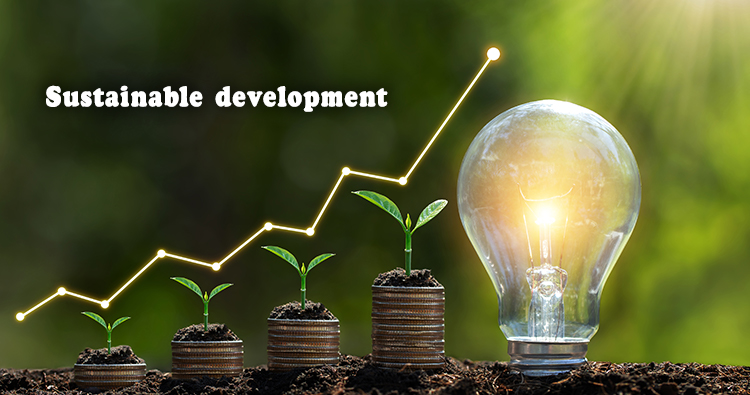- +91 9940061778
-





Sustainable development is the future. Do you know how you can be a part of it?
India is witnessing the highest rise in carbon emissions as per COP27, which is a great concern for the government and the citizens. However, the positive thing is that people are also becoming aware and responsible for environmental conditions. However, to achieve the Net Zero target by 2050, the amount of investments required is one of the biggest concerns. Here comes the opportunity for investors looking to invest responsibly and for a sustainable future. In this article, you will find how you can be a part of this change and meet your investment goals.
Sustainable investment is the way
Now, if you have heard of sustainable investments, you may have heard about ESG, so what does this mean? Sustainable investment has been gaining importance globally and in India with the rising concerns of climatic changes. This is an investment approach that is focused on earning higher returns or lowering the risks involved but also considers the investment's effect on the environment and society.
ESG stands for environment, social and governance which are the three pillars of sustainable development. These three criteria help in deciding how to approach sustainable investment, which is recognized internationally.
How to invest sustainably?
ESG being the pillar of sustainable investments, ESG funds are the easiest way to invest responsibly and generate competitive returns over time. There has been a 5 times rise in the assets of ESG funds in the last 4 years, and the total AUM of ESG funds has crossed Rs.12450 crores mark.
ESG funds are mutual funds that invest the pooled capital from different investors into assets of companies that are performing well or meeting the ESG criteria set for the businesses. Stocks and bonds are the main constituents of ESG funds, which are companies that operate sustainably.
You can buy ESG funds like any other mutual funds from mutual fund houses and online platforms. However, while investing in ESG funds, you need to check whether the fund invests in companies with high ESG scores.
Suppose you are thinking about investing in direct equities of companies complying with ESG requirements. In that case, you need to check whether the company's products and services are eco-friendly. Moreover, you need to check whether the business has a positive social impact and whether they have proven corporate governance policies and ethics. While these are related to the ESG aspect, you should also consider the return and risk profile as well for fruitful investments. Compare the average return generated by the sector with the fund's return, and also don't forget to check the expense ratio.
While investing in ESG funds or companies operating as per ESG norms is the primary way to invest for a sustainable future, you should also avoid investing in companies with high carbon footprints or emitting a high carbon level due to their operations.
Benefits of investing in ESG funds for the future
Outlook for India
In India, ESG investing is still in its early stages. However, there is an exceptional growth prospect for the sector. In the past year, the category average of ESG funds offered a negative return of 2.3%; however, in the last 2 years, the category average has been 21.78%, higher than many traditional investment vehicles. Another report suggests that while the average percentage of ESG-linked bonds in emerging markets is around 10.5%, and 25% in China, in India, it is only 0.7% at present, there is a huge room for growth.
So, if you are concerned about the environment and want to invest in a sustainable future, this is the time.
This blog is purely for educational purposes and not to be treated as personal advice. Mutual funds are subject to market risks, read all scheme-related documents carefully.
4C Financial Services is one of the leading financial services providers offering a comprehensive suite of services designed to empower our clients with sound financial strategies and personalized solutions in an ever-evolving financial landscape.
4C FINANCIAL SERVICES
Antispot, 13, 1st Main Road, R V
Nagar, Block I, Annanagar East,
Chennai 600102.
Copyright © 4C Financial Services. All rights reserved.